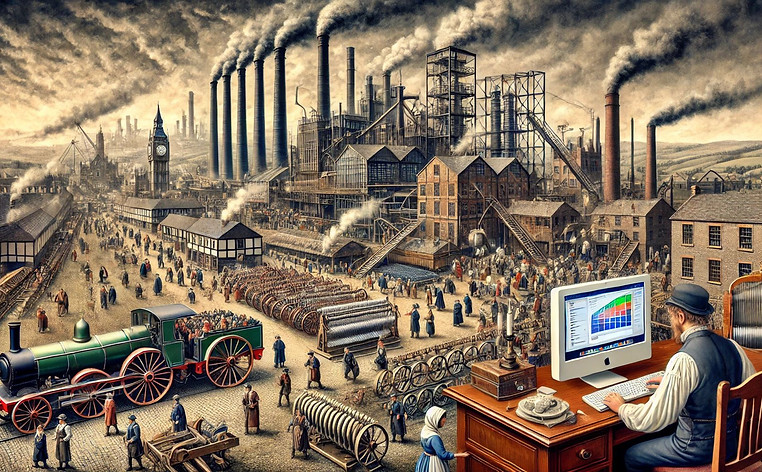The Rise of Quantum Hype: What’s Behind It?
I don't know about you, but I have become increasingly paranoid about quantum computing hype!
Last week, a review paper on Quantum Machine Learning was brought to my attention.
At first glance, it seemed well-written—so much so that I think it can become one of my go-to references on the subject.
But then I decided to read it more carefully, starting from page one, and that’s when my "HYPE DETECTOR ALARM" was triggered!
This is how it starts:
"The advancement of computational power has always been a driving force behind every major industrial revolution."
This immediately reminded me of the time when I used to be fascinated by the unification program.
Of course, I am talking about string theory.
Back then, I had learned to repeat the most unsupported claims about unification.
For example, I remember Steven Weinberg saying that just as Newton unified celestial and terrestrial physics, and Maxwell unified electricity and magnetism, contemporary physicists were in search of the unification of all the forces of nature.
For Weinberg and other supporters of a "final theory," this was seen as the natural continuation of a long and respectable tradition. It was a sort of duty to do it!
These kinds of historical reconstructions are very common in science (let alone in politics).
They are particularly prevalent in scientific programs that are still in an immature stage of development, where they must rely on dubious arguments to gain support—both within the scientific community and among the general public, including young talent.
That's exactly how I felt when I read the sentence about the "advancement of computational power" driving "every major industrial revolution."
From what I know, the Industrial Revolution began in the mid-18th century in Britain, characterized by the mechanization of the textile industry and the development of steam power.
This was followed in the second half of the 19th century by the expansion of the steel industry and the electrification of industries and society.
That’s what I remember from what I have read!
Of course, this is a classic economic-driven approach, but I think most people would agree with it.
Now, I understand that all these technological advances require scientific progress, and to some extent, they may also depend on increases in computational power.
But is it really true that "the advancement of computational power has always been a driving force behind every major industrial revolution"?
I'm not so sure.
In fact, I highly doubt it!
Maybe you know better and have a couple of references to support this claim.
If so, please share them below.
From what I know, the Industrial Revolution lasted for almost two centuries before computational power had any real impact on the way modern industries and societies functioned—with the advent of modern computers in the mid-20th century.
Want to dive deeper? My eBook is a great place to start → https://www.ozatp.com/qaf
